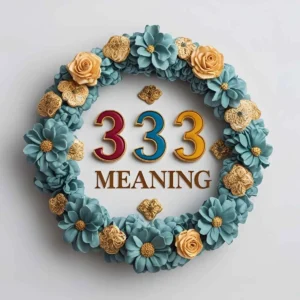Understanding the solfege meaning goes far beyond a quick dictionary definition. For musicians, students, and even crossword fans, this little word carries weight. While its roots lie in music theory, its presence has expanded to classrooms, pop culture, internet slang, and even unusual contexts like astrology and bowling.
This guide will walk you through what solfege really means, how it works in sight-singing, why it’s essential for pitch training, and why people keep searching for odd terms like solfege meaning Libra or solfege meaning justice.
Let’s dive in.
What Does Solfege Mean?
At its core, the solfege definition is simple: it’s a music education system that assigns syllables to musical notes. Think Do-Re-Mi-Fa-Sol-La-Ti-Do.
The term comes from the French word “solfège”, which itself has roots in Italian (solfeggio). Teachers use this system to train singers and instrumentalists to recognize pitch, scale patterns, and intervals.
But here’s the catch—because the word sounds unusual, people often assume it has other meanings outside of music. That’s why searches for solfege slang or solfege justice pop up online.
Solfege Meaning in Music 🎵
The real heart of the word lies in music theory. If you’ve ever watched The Sound of Music, you’ll remember Julie Andrews singing “Do-Re-Mi.” That’s solfege in action.
What is Solfege in Music?
Solfege is a method of sight-singing where each note of the scale is assigned a syllable:
| Note | Syllable |
|---|---|
| C | Do |
| D | Re |
| E | Mi |
| F | Fa |
| G | Sol |
| A | La |
| B | Ti |
| C (octave) | Do |
Musicians use these solfege syllables to:
- Train their ears
- Improve pitch accuracy
- Sight-read musical notes
- Build strong memory of scales
Fixed Do vs Movable Do Solfege
There are two main solfege systems:
- Fixed Do Solfege: Each syllable always represents the same note. For example, “Do” is always C. Used widely in Europe and Latin America.
- Movable Do Solfege: “Do” represents the first note of the scale, no matter the key. For example, in G major, “Do” = G. Common in English-speaking countries.
Both methods are correct—it depends on teaching tradition and purpose.
Solfège vs Solfege: Spelling Differences
You’ll often see the word spelled both as solfege and solfège. They mean the exact same thing.
- Solfège (with accent): The original French spelling.
- Solfege (without accent): The simplified English spelling.
In American usage, the accent is usually dropped. In Europe, the accented form is common.
Solfege Meaning in English
In plain English, the solfege definition is:
“A system of teaching pitch and sight-singing by assigning syllables to notes of the scale.”
Example in a sentence:
- “The choir practiced using solfege to master their harmonies.”
It’s not slang. It’s not astrological. It’s music education—straightforward and powerful.
Solfege Meaning in Slang and Internet Culture
People sometimes search for “solfege meaning slang in English.” In truth, solfege isn’t widely used as slang.
So why the confusion?
- Crossword puzzles (especially the NYT Crossword) often clue “solfege” with playful hints.
- Social media sometimes throws it around in memes, usually with a joking “Do-Re-Mi” reference.
- Language learners mistake it for a borrowed word with different meanings.
Bottom line: no solid slang meaning exists for solfege. If you see it used outside of music, it’s likely playful or ironic.
Solfege Meaning in Libra (Astrology Context ♎)
Here’s another odd one: people look up solfege meaning Libra.
Truth: there’s no astrological link. Solfege isn’t tied to zodiac signs, horoscopes, or planetary symbols.
Why the confusion?
- Misinterpretation of mystical or New Age texts.
- People mixing up solfege with other symbolic terms.
- Curiosity-driven searches after seeing it online.
If you’re a Libra, sorry—solfege won’t reveal your horoscope.
Solfege Meaning in the New York Times Crossword
Now here’s a real connection. Solfege shows up frequently in the NYT Crossword and other puzzles.
Common clues include:
- “Do-Re-Mi system”
- “Sight-singing scale”
- “Music teacher’s tool”
Because of this, many crossword players Google solfege definition when stuck. That explains spikes in search volume.
Solfege Meaning in Justice
Another strange query: solfege meaning justice.
There’s no dictionary link between solfege and legal systems. But let’s unpack the possible reasons:
- Some writers use musical metaphors: harmony = justice, dissonance = injustice.
- A mistranslation from non-English texts may connect the two words.
- Curiosity-driven misclicks or search errors.
Unless you’re reading poetry that compares musical harmony to social justice, solfege doesn’t belong in legal language.
Solfege Meaning in Bowling 🎳
Believe it or not, people also search for solfege meaning bowling.
Fact check: no official connection exists. This seems to be pure confusion—maybe a mix-up with similar sounding terms or a pop culture reference gone wrong.
So if you hear “solfege” at the bowling alley, it’s probably just someone joking around.
Common Misconceptions About Solfege
- Myth: Solfege is slang.
- Reality: It’s strictly a music theory method.
- Myth: Solfege has astrological meaning.
- Reality: No relation to zodiac signs.
- Myth: Solfege is outdated.
- Reality: Still used worldwide in choirs, schools, and conservatories.
- Myth: Only singers use solfege.
- Reality: Instrumentalists also use it for ear training.
Why Solfege Matters
The importance of solfege is huge in education:
- Builds ear training skills.
- Helps with sight-singing.
- Improves memory of scales and intervals.
- Boosts confidence in both solo and group performances.
Benefits of Solfege Exercises
- Singers can quickly match pitch.
- Musicians can hear intervals without an instrument.
- Beginners grasp musical notes faster.
- Helps with transposing songs into different keys.
Solfege for Beginners
If you’re just starting out, here’s a simple solfege exercise:
- Pick a C major scale.
- Sing each note using the solfege syllables: Do-Re-Mi-Fa-Sol-La-Ti-Do.
- Repeat it backward.
- Practice with a piano to check accuracy.
Adding solfege hand signs (gestures linked to each note) can make learning even easier. Teachers use this method with children, choirs, and beginners of all ages.
Solfege Examples in Real Life
- A choir rehearsing “Do-Re-Mi.”
- Music students learning to identify intervals by ear.
- Pianists practicing scales with solfege syllables instead of note names.
Quote from a music teacher:
“Solfege is like learning the alphabet of music. Once you master it, you can read, hear, and sing anything with confidence.”
Conclusion
So, what is solfege really about?
The solfege meaning is rooted in music theory, not slang, astrology, justice, or bowling. It’s the foundation of sight-singing, pitch training, and ear development. Whether you’re a choir student, a crossword solver, or just curious after hearing “Do-Re-Mi,” solfege is the key to unlocking the language of music.
If you want to improve your singing or deepen your understanding of music, learning solfege exercises is one of the most effective first steps. And if you stumble across it in a crossword clue, you’ll know exactly what it means.



